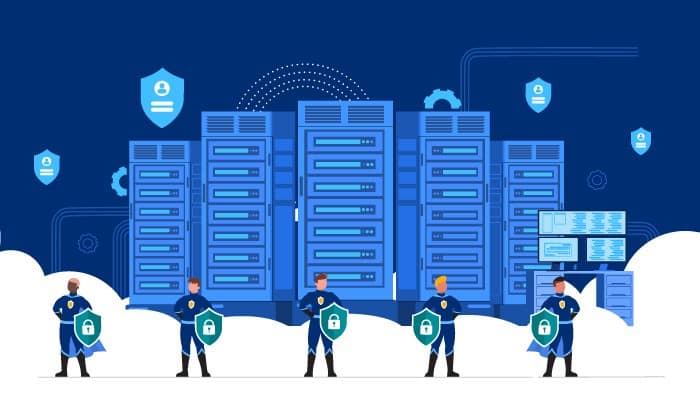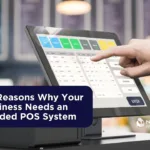Welcome to Nationwide Payment Systems, your source for business intelligence, breaking news, and technology trends for today’s business owners. Last week we covered digital commerce in three podcast episodes, including the latest trends in POS technology, how to protect your POS system and why it’s essential to keep your POS compliant and up to date.
As we all know, people of all ages became more comfortable shopping and ordering on phones and laptops during the pandemic. Digital commerce is here to stay, and businesses that don’t adapt may be left behind. But updating your equipment and becoming PCI compliant doesn’t have to be complicated or expensive. Nationwide Payments Systems can help. Learn more at https://npsbank.com/ or call us directly at 866-677-2265. We’re just a call or click away.
Cybersecurity & Identity Theft
Security and identity theft are top concerns for business owners. I was reminded of this when I recently reviewed a merchant application and noticed a few red flags right off the bat. The email and website on the application didn’t match, and I got one of those voice-to-text lines when I called the number, and I left a message, surprise! I never heard back. But hang on, it gets better.
When I Googled the business, the address matched the website, but none of the other information checked out, and I found a different phone number. The business owner told me someone had stolen his identity and applied for several merchant accounts when I called. I then heard from the police who were investigating the incident. It seems the bad actor opened three or four merchant accounts, signed some leases, and generated over $25,000 in chargebacks.
I felt terrible for this guy. He would not have had these problems if the other processors had better screened the fraudulent merchant application. The application had multiple red flags, but four payment processors let the fraudster open a merchant account anyway. The merchant has $25 grand in chargebacks, and his credit and business credit are ruined.
In the age of digital commerce, you need to protect your personal and business credit. McAfee and Norton antivirus programs just don’t cut it for today’s technology. Hackers are more innovative and faster in finding vulnerabilities. Apple and Android constantly update software and firmware to protect personal devices, smartphones, and POS platforms. Listen to Episode 48 for more tips on cybersecurity and identity theft protection.
PCI Compliance
What is PCI compliance, and why do we have to do it? The Payment Card Industry Data Security Standard is an information security standard for organizations that handle branded credit cards from major credit card schemes. PCI DSS is mandated by the card brands and administered by the Payment Card Industry Standards Security Council, the PCI SSC. They have a website with more details about the program, guidelines, and requirements.
If you’re accepting card-not-present transactions, you’re required to run quarterly and or monthly scans, depending on your payment card processing volume. Your point of sale and eCommerce systems have to be scanned, and your report will show if you pass or fail and point out any vulnerabilities. One common vulnerability that merchants run into is using open WiFi for their guests and businesses. Another one has multiple systems without a full-time IT manager, but there are workarounds for that.
Most self-assessment questionnaires (SAQs) take about half an hour to run through. Vulnerability scans take 10 or 15 minutes. Everybody has to be PCI compliant, and some processing companies charge non-compliance fees if you don’t complete the questionnaire. If you have a simple credit card machine or POS system or a semi-integrated solution, you have a shorter SAQ that only takes 10 minutes to 30 minutes to fill out, and then, you log in once a year to confirm that everything’s the same. And you’re all done.
What happens when you have a security breach? Most of the big ones that you read about are inside jobs. I recall a restaurant where an ex-employee breached the system, downloaded a bunch of credit cards, and uploaded them to the Dark Web. The POS company, which I’ll leave nameless, must have known there was a vulnerability because they installed a brand new server and wouldn’t allow us access. I talk about other security breaches and merchants I have helped in Episode 49 of B2B Vault.
Digital Commerce Payment Processing
At Nationwide Payment Systems, we work with startups, early-stage companies, existing companies, crypto-related businesses, gaming companies, coin exchanges. Many next-generation companies only accept cryptocurrency and may be dealing with various issues accepting crypto.
The time it takes to transfer cryptocurrency from the buyer to the actual business isn’t always smooth. Nationwide Payment Systems provides credit card processing, domestic merchant services, and international merchant services, spanning many countries and payment types. When you get into global credit card processing, it’s not the same as the United States, where it’s just all Visa and Mastercard. Many countries have local payment methods on cards that are more like debit cards than credit cards.
NFTs are also trending on the internet. How many searches did we see today, Justin? Something like 950 million searches about NFTs, non-fungible tokens, when we Googled digital commerce. A lot of athletes buy NFTs. How do you get into the game? It’s a complicated process. You need some cryptocurrency, which you store in a crypto wallet, and then you need to set up a Meta mask and open accounts on different NFT marketplace websites, which can be broken into three categories:
Art and trading card NFTs: Someone has photography of an artist that they turn into a static or moving image. Rob Gronkowski, the Gronk, had an NFT among other sports players. Their scarcity makes NFTs more valuable. If somebody only makes 500 of them, the value goes up. It all depends on the collection.
Functional Tokens: With functional tokens, the NFT creator might give you a free one after a certain amount of time. People try to sell these free tokens.
Utility Tokens: Utility tokens offer ownership benefits. You may buy this type of token from a unique networking group to access cool events or people. We may see restaurants coming issuing this type of token.
To be clear, we’re not giving you advice on how to invest in NFTs, other than to say, be extremely cautious. Do your research before purchasing, selling, gifting, and connecting a wallet. Make sure you do your due diligence and know about the platform you’re using and what you want to do. Don’t get stuck buying into a platform and finding out you can’t gift the NFTs or that there is a complicated procedure for moving them. Learn more about crypto exchanges, internet banks, and the Metaverse in Episode 50 of the B2B Vault Podcast.









